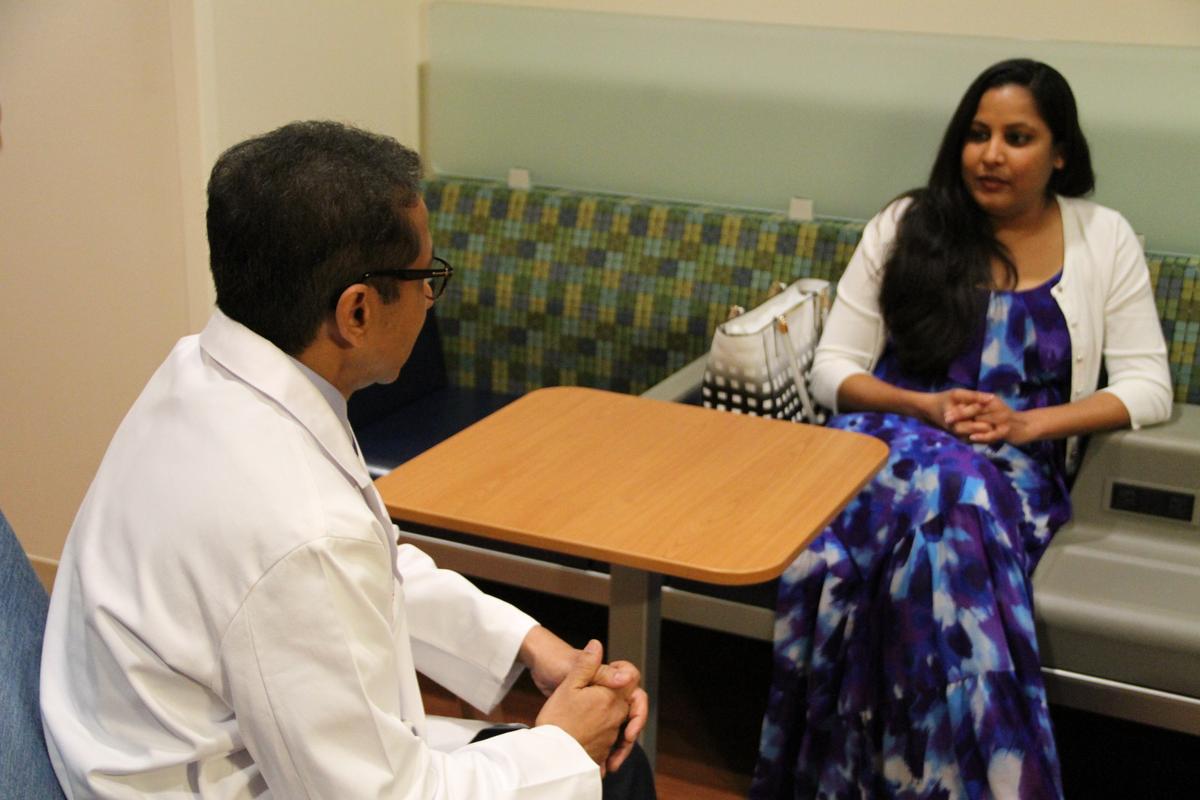Earlier this year Dr. Rhea Birusingh began to experience blurry vision.
She thought it might be some side effect related to her pregnancy, but on Feb. 9, 2016, her ophthalmologist discovered a brain tumor located behind her right eye. It was benign, but growing fast, as it fed on hormones that increase during pregnancy.
Birusingh was induced at 34 weeks. Giving birth effectively stopped the mass from increasing, but the challenge was knocking out the tumor for good.
Because of the tumor’s location, surgery wasn’t an option, and conventional radiation presented some serious risks.
Birusingh’s tumor was not only close to her delicate optic nerve, but also to her hippocampus and hypothalamus. This means that any conventional treatment aimed at the tumor site would likely impact these critical brain structures, potentially leading to a loss of eyesight and short-term memory, and impairing her hormonal function.
“I’m 36 years old. I need my hormones,” Birusingh said. “My husband needs me to have my hormones regular. He does not want to have a wife who is pre-menstrual all the time. That would have been hell for him.”
Birusingh sought help from radiation oncologist Dr. Naren Ramakrishna, director of neurologic and pediatric radiation oncology at UF Health Cancer Center in Orlando, Florida. His recommendation was to treat the tumor with proton therapy.
“We could have treated her type of tumor successfully using intensity-modulated radiotherapy (IMRT). It would have been an acceptable treatment. It’s the standard of care around the world,” Ramakrishna said. “But what is remarkable about protons is that we are able to go a step beyond that in terms of her long-term outcome.”







